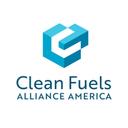North America
Xpansiv on June 6 announced the launch of the Transport Emission Reduction Certificate (TERC), a voluntary renewable fuel certificate representing the greenhouse gas (GHG) reduction from the use of renewable biofuels.
The Clean Fuels Alliance America and 75 industry stakeholders delivered a letter to President Joe Biden, urging him to ensure that the U.S. EPA substantially increases the biomass-based diesel (BBD) and advanced biofuels RVOs in the RFS "set" rule.
Nebraska Gov. Jim Pillen has signed into law legislation promoting the sale and use of biodiesel in Nebraska. The bill, LB 727, provides retail tax incentives for the sale of biodiesel at fuel retailer locations throughout the state.
The U.S. exported 147,212.9 metric tons of biodiesel and biodiesel blends of B30 and greater in April, according to data released by the USDA on June 7. Imports of biodiesel and biodiesel blends of B30 and greater reached 134,326.1 metric tons.
Air Canada completed its inaugural Montreal to Amsterdam flights on June 3, with a Boeing 787 Dreamliner using sustainable aviation fuel. The airline is also expanding its partnership with Neste to incorporate SAF into some of its Amsterdam flights.
Neste has partnered with Rio Tinto to help the company transition all of its heavy machinery from fossil diesel to renewable diesel at the U.S. Borax mine in Boron, California. The partnership helps Rio Tinto reduce the carbon footprint of its fleet.
The DOE has released its U.S. National Clean Hydrogen Strategy and Roadmap, which addresses both the potential to produce hydrogen from biomass and biogas and the growing need for hydrogen feedstock in advanced biofuels production, particularly SAF.
Global Clean Energy Holdings Inc. and the USDA have signed a contract for the Partnerships for Climate-Smart Commodities Grant for their Climate-Smart Camelina project. With the signing, work can officially begin on the $30 million pilot project.
The Illinois Soybean Association recently launched an updated B20 Club webpage that features an interactive map of Illinois-based organizations that utilize 20 percent biodiesel and higher blends to fuel their fleets.
The Canadian government on May 31 announced plans to invest $86 million into a project that is converting an oil refinery located in Come By Chance, Newfoundland and Labrador, into a biorefinery that will produce renewable diesel and SAF.
The ag commissioners of Iowa, Alabama, Georgia, Kentucky, Louisiana, Mississippi, North Carolina, North Dakota, South Carolina, Texas and West Virginia are urging the U.S. EPA to boost biomass-based diesel RVOs in the upcoming RFS rule.
CleanJoule, a U.S.-based startup focused on the production of sustainable aviation fuel (SAF), has announced a $50 million investment round led by the principals of Indigo Partners, a U.S.-based private equity firm.
Honeywell on May 31 announced that bp selected Honeywell's Ecofining technology to help support the production of SAF at five bp facilities across the globe, including those located in the U.S., Netherlands, Germany, Spain and Australia.
Vertex Energy Inc. on May 31 announced the successful completion of the startup procedures for its renewable diesel conversion project at its Mobile, Alabama, refining facility. The renewable diesel unit achieved initial production on May 27.
U.S. operatable biofuels capacity expanded by 381 MMgy in March, with gains for renewable diesel, ethanol, and biodiesel. Total feedstock consumption was at 27.087 billion pounds in March, up from 24.537 billion pounds the previous month.
Sojitz Corp. and NEXT Renewable Fuels Inc. have entered into a strategic relationship whereby Sojitz has made a strategic investment in NEXT. Following this investment, the two companies plan to work together to advance NEXT's proposed biorefinery.
USITC: Duties on Argentina, Indonesia biodiesel will continue
Clean Fuels Alliance America on May 26 welcomed the final determination of the U.S. International Trade Commission in its five-year (“sunset�) review of anti-dumping and countervailing duty orders on biodiesel from Argentina and Indonesia.
BDI BioEnergy's Manfred Baumgartner discusses how companies can better prepare for the evolving feedstock landscape.
Iowa Gov. Kim Reynolds, Missouri Gov. Mike Parson and Nebraska Gov. are urging the U.S. EPA to increase biomass-based diesel renewable volume obligations (RVOs) for 2023, 2024 and 2025 in the upcoming Renewable Fuel Standard “set� rule.
Building new renewable fuel plants and increasing the pace of existing crush facilities can set the demand side of the soy biodiesel equation, but the supply side becomes complicated.
The U.S. Department of Energy on May 24 launched the Clean Fuels & Products Shot, which aims to significantly reduce GHG emissions from carbon-based fuels, including though the increased use of biomass and waste feedstocks.
Biodiesel Magazine spoke with an auditor and an industry expert about what biointermediates are, potential opportunities and hurdles to participation.
The quest for carbon reduction is driving interest in higher biodiesel blends, and Optimus Technologies' Vector System is enabling diesel engines to transition.
4AIR, which helps companies offset their emissions, use SAF, and drive technological change, has launched Assure SAF Registry, a blockchain-based web registry designed to document, trace and account for the sustainability attributes of SAF.
ASTM International has approved a new Low Metals (LM) grade of biodiesel in D6751, the ASTM specification for low-carbon B100 biodiesel used as a blendstock with middle distillate fuels such as diesel fuel.
A $1.3 billion transportation budget package passed by the Minnesota legislature on May 21 aims to create a Clean Transportation Standard Working Group to study and address information gaps and opportunities related to the development of a state CFS.
The White House OMB has opened a public comment period as part of a federal effort that aims to improve how to identify, classify and measure bioeconomy manufacturing, technology and products, including biobased fuels, chemicals and materials.
The U.S. Department of Energy on May 19 awarded a combined $3 million to two waste-to-energy projects, including one that focuses on the potential to convert biosolids into renewable diesel and sustainable aviation fuel (SAF).
Advertisement
Advertisement



































